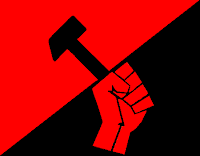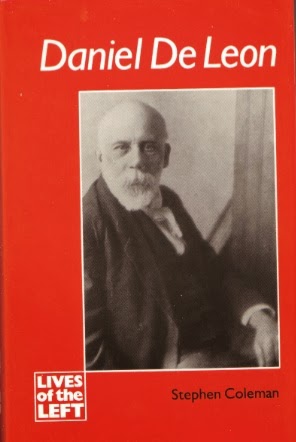Ending of the exploitation, cruelty and injustice caused by class society in all its various forms is the goal of the Socialist Party. Socialism alone can end the exploitation of man by man. The aim we have set ourselves can be realised only with your active participation.
Socialism will be when the means of production—the factories, mines, land, and transport—are taken away from the monopoly capitalists are transformed into social property. This means that they belong to and are worked by the whole of the people, that the fruits of production likewise become social property, used to advance the standard of life of the people.
No longer can the capitalists by virtue of the fact that they own the means of production, live off the labour of others. No longer are the workers compelled to sell their labour power to the capitalists in order to live. The workers are no longer property-less proletarians. They now collectively own the means of production and work them in their own interests and in the interests of society, an associated body of wealth-producers. Socialism is the transition of mankind from class to a fully class-free society. This means the greatest advance in human history of all time, an abundance of goods of all kinds is reached. Society can now advance where the watchword is, “From each according to ability, to each according to needs”. Production will be planned in the interests of a continually rising standard of living for the people and in harmony for a healthy environment.
What is the Labour Party? Every socialist is supposed to be in the Labour Party we are told. But what distinguishes it from a socialist party. First, by eliminating the ultimate socialist ideal, the co-operative commonwealth, and confining its propaganda to present-day problems; and, second, by eliminating “general” questions and confining itself specifically to the special problems to unite in its organization the entire proletariat, irrespective of “political” or “social” belief, on a programme of its own “immediate demands;” and to carry that platform through by the aid of “friendly” capitalists disposed towards the “reasonable” demands of working people and such bourgeois political parties as may need its aid in Parliament and are willing to pay its price in the way of “social legislation.”
It is of the very essence of the Labour Party that it must not be “revolutionary.” First, because its aim is not to overthrow the existing order, but to meet the needs of “labour” under the present system. Second, it would alienate the sympathies of the bourgeois reformers, and it would make it impossible for any bourgeois political party to grant any of its demands. Any “revolutionary” sentiment that it may develop must be curbed.
The projected society we visualise is a society that would be based on the common ownership of the means of production, the elimination of private profit in the means of production, the abolition of the wage system, and the abolition of the division of society into classes.
Because as classes are abolished, as exploitation is eliminated, as the conflict of class against class is eliminated, the very reason for the existence of a government in the strict sense of the term begins to diminish. Governments are primarily instruments of repression of one class against another. According to the doctrine of all the great Marxists, we visualise, as Engels expressed it, a gradual withering away of the government as a repressive force, as an armed force, and its replacement by purely administrative councils, whose duties will be to plan production, to supervise public works, and education, and things of this sort. The government, as Engels expressed it, tends to wither away and the government of men will be replaced by the administration of things. The “government” of a socialist society in reality will be an administrative body because we don’t anticipate the need for armies, jails, repressions, and consequently, that aspect of government dies out for want of function.
By social revolution, we mean a transformation, a political and economic transformation of society. We visualise the future society of mankind as a socialist world order which will have a comradely collaboration between different lands and peoples with the production of the necessities and luxuries of mankind according to universal global planning







